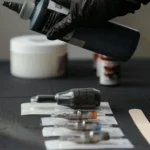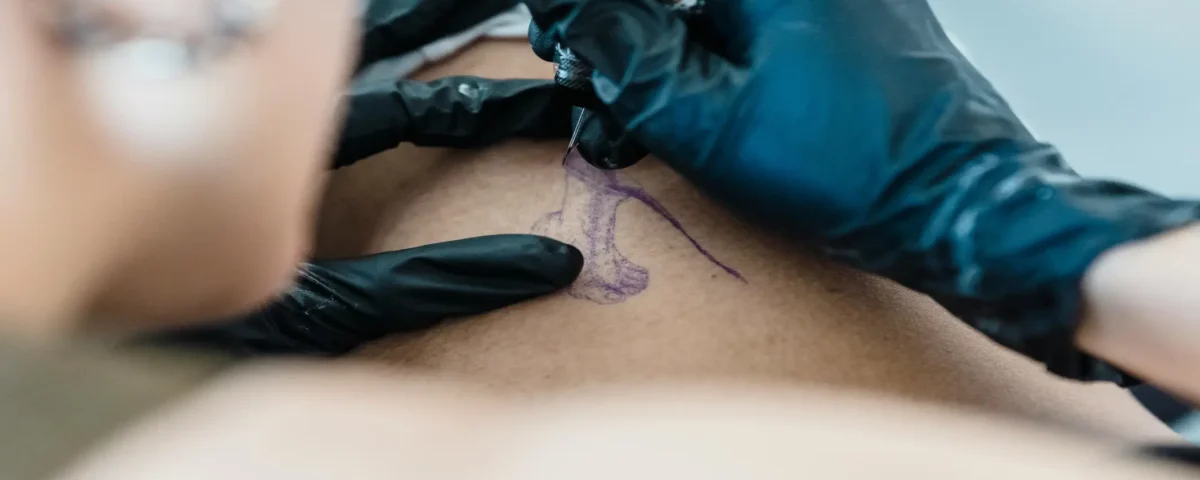
Tattoos and Medical Conditions? What You Need to Know
January 4, 2025
The Importance of Choosing a Regulated Tattoo Studio
January 25, 2025Tattoos and Skin Health: Your Ink, Your Health

Tattoos are a form of body art that has stood the test of time. But behind every vibrant, meaningful design is a process that involves your skin, your body's largest organ. That's why it's crucial to understand the potential risks and take the necessary precautions to enjoy your tattoo safely.
What are the risks of getting a tattoo?
While tattoos are generally safe when done in hygienic conditions, there are certain risks to consider:
- Infections: Bacteria, viruses, or fungi introduced through contaminated needles or ink can lead to local or systemic infections like cellulitis, staph infections, or strep infections.
- Allergic reactions: Some inks, especially reds, blues, and greens, can cause allergic reactions in sensitive individuals. These reactions can manifest as contact dermatitis, granulomas, or keloids.
Pre-existing skin conditions: If you have a skin condition like psoriasis, eczema, or vitiligo, it's important to consult your dermatologist before getting a tattoo.
How to choose a safe tattoo studio
Choosing the right tattoo studio is crucial for your safety. Consider the following:
- Health permit: Ensure the studio has the necessary permits and adheres to health regulations.
- Sterilized equipment: Observe how equipment is sterilized before and after each procedure. Needles should be single-use and disposable.
- Quality ink: Ask about the brand and origin of the inks used.
- Portfolios and references: Review the artist's previous work and ask for references from other clients.
- Clean environment: The studio should be clean and tidy, with a hygienic atmosphere.
Before and aftercare
- Consult your doctor: If you have any medical conditions or are taking medications, consult your doctor before getting a tattoo.
- Skin preparation: The tattoo area should be clean and free of any products or creams.
- Aftercare: Follow your artist's instructions carefully. This typically includes cleaning the tattooed area with antibacterial soap, applying antibiotic ointment, and protecting it from the sun for several weeks.
Additional tips
- Hydration: Keep your tattooed skin moisturized with a non-comedogenic cream to promote healing.
- Sun protection: Use a high-SPF sunscreen to prevent your tattoo from fading and damage.
- Avoid scratching: Avoid scratching or picking at the scabs that form, as this can lead to infection and scarring.
- No swimming: Avoid swimming in pools or bodies of water for the first few weeks.
- Choose a design that means something to you: A tattoo is a lifelong commitment, so choose a design that holds special meaning.
Consider the placement: The placement of your tattoo can affect the healing process and sun exposure.
What if I have an adverse reaction?
If you experience redness, swelling, severe pain, fever, or pus in the tattooed area, consult your doctor immediately.
Conclusion
Tattoos are a fantastic way to express yourself, but it's essential to prioritize your health. By choosing a reputable tattoo studio, following aftercare instructions, and being mindful of potential risks, you can enjoy your tattoo for years to come.

